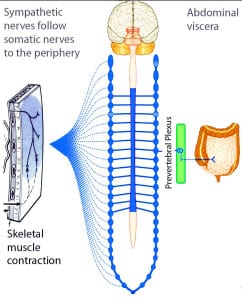Carpal Tunnel Syndrome & Tests

We offer a range of carpal tunnel treatments to patients in the Greenville, Spartanburg & Anderson areas.
Do you feel numbness or tingling in your hand at night? Do you sometimes experience a sharp pain that goes up your arm to your shoulder? Do you have trouble holding objects without dropping them? You may be experiencing symptoms of carpal tunnel syndrome.
What Is It?
Carpal tunnel syndrome is a common problem that interferes with the use of your hands. It most often occurs when tendons in the wrist are inflamed after being aggravated by repetitive movements such as typing on a computer keyboard. This may cause progressive narrowing of the carpal wrist tunnel of bone and ligament that passes through the center of the wrist. The result is pressure on the nerves to the fingers and to the muscles at the base of the thumb.








